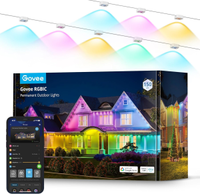5 things you should never do when hanging Christmas lights
Avoid these easy mistakes for a happy and safe festive season
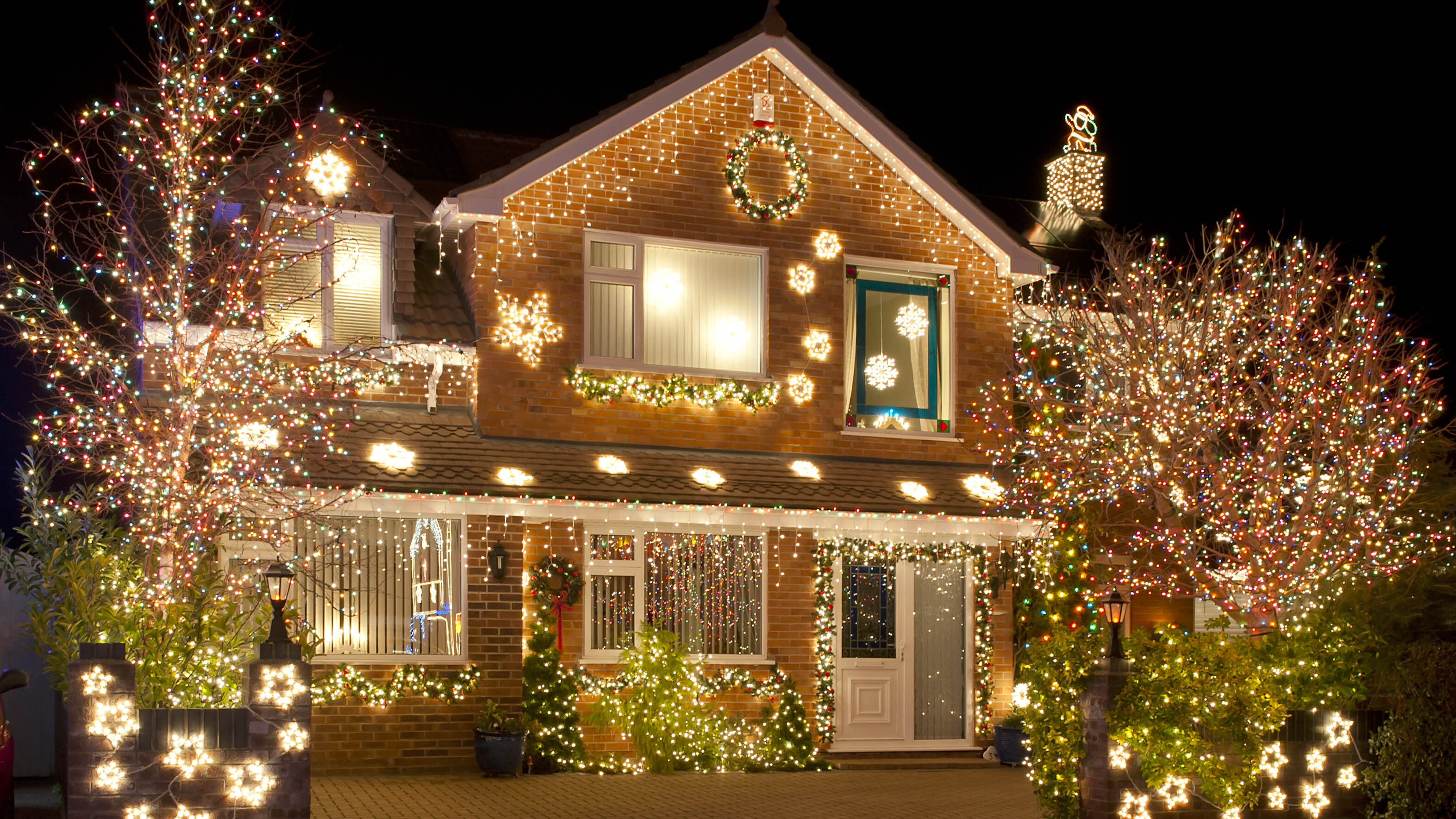
It’s the most wonderful time of the year, made even more wonderful by the festive decorations we hang up around our homes. As the holiday season gets into full swing, we find ourselves emerging from our lofts and basements with boxes packed with festive delights - and lights. But, when it comes to hanging up the Christmas lights, there’s definitely some rules you should follow. While we don’t want to ruin the festivities by laying down rules, we promise they’re very important if you want to enjoy a Christmas filled with twinkling lights and not trouble.
While there’s viral Christmas tree lightning hacks to follow, and 5 festive ways to decorate a Christmas tree, we’ve asked the experts for their advice on the 5 things you should never do when hanging Christmas lights - and we hope they’ll save you a lot of time and money.
1. Use indoor lights outdoors
Jon Saeed, managing director of LightingLegends.com advises, “Outdoor lights must be robust and durable for the winter season. Not only will installing high quality lights look better, it will also help prevent hazards and ensure they work properly without damage.”
With any hanging lights you own, there should be instructions that inform you whether the lights are suitable for indoor or outdoor use. If they have an IP65 rating, that means they’re safe for the outdoors. This is a really important factor to ensure you avoid any risk of fire, because if you place your indoor lights in the wrong location, they're not waterproof and can’t handle the change in weather.
With the Govee Permanent Outdoor Lights you can choose from 75 scene modes to light up your house remotely. Now on sale for Black Friday, it's the perfect time to invest.
2. Overload lights
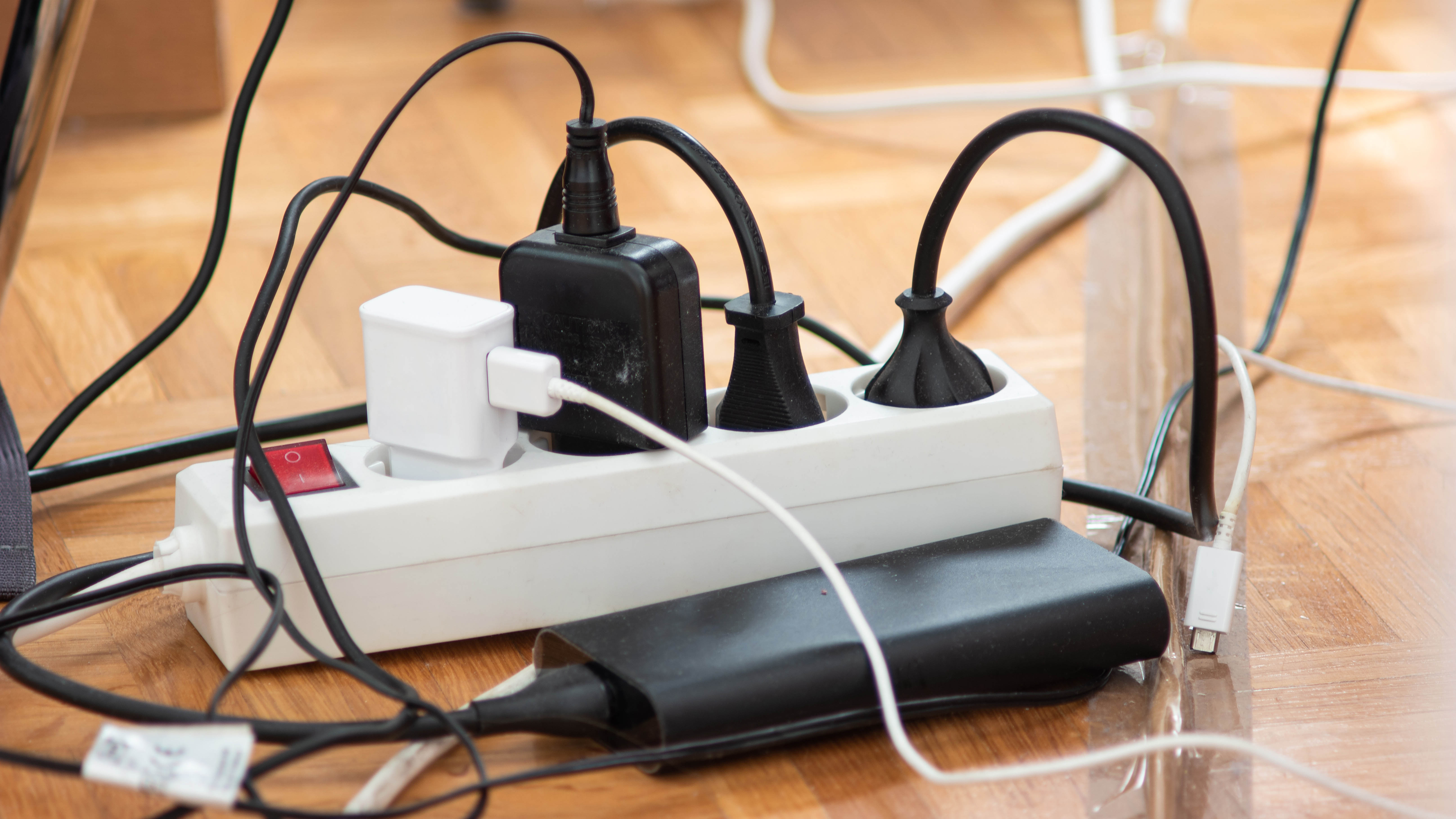
The only fire we want to be enjoying around the festive season is a warm, crackling, and safe one. So, don’t overload your plug sockets with lights even if you want to increase the festive feeling. Saeed says, “Indoor lights are a great way to feel the magic of Christmas but be mindful not to overload plug sockets or you could create a fire hazard. It’s also important to turn lights off at night.” Using extension leads and loading them up is a very bad idea. Make sure you're using one of the best surge protectors with plenty of outlets.
3. Hang without a spotter
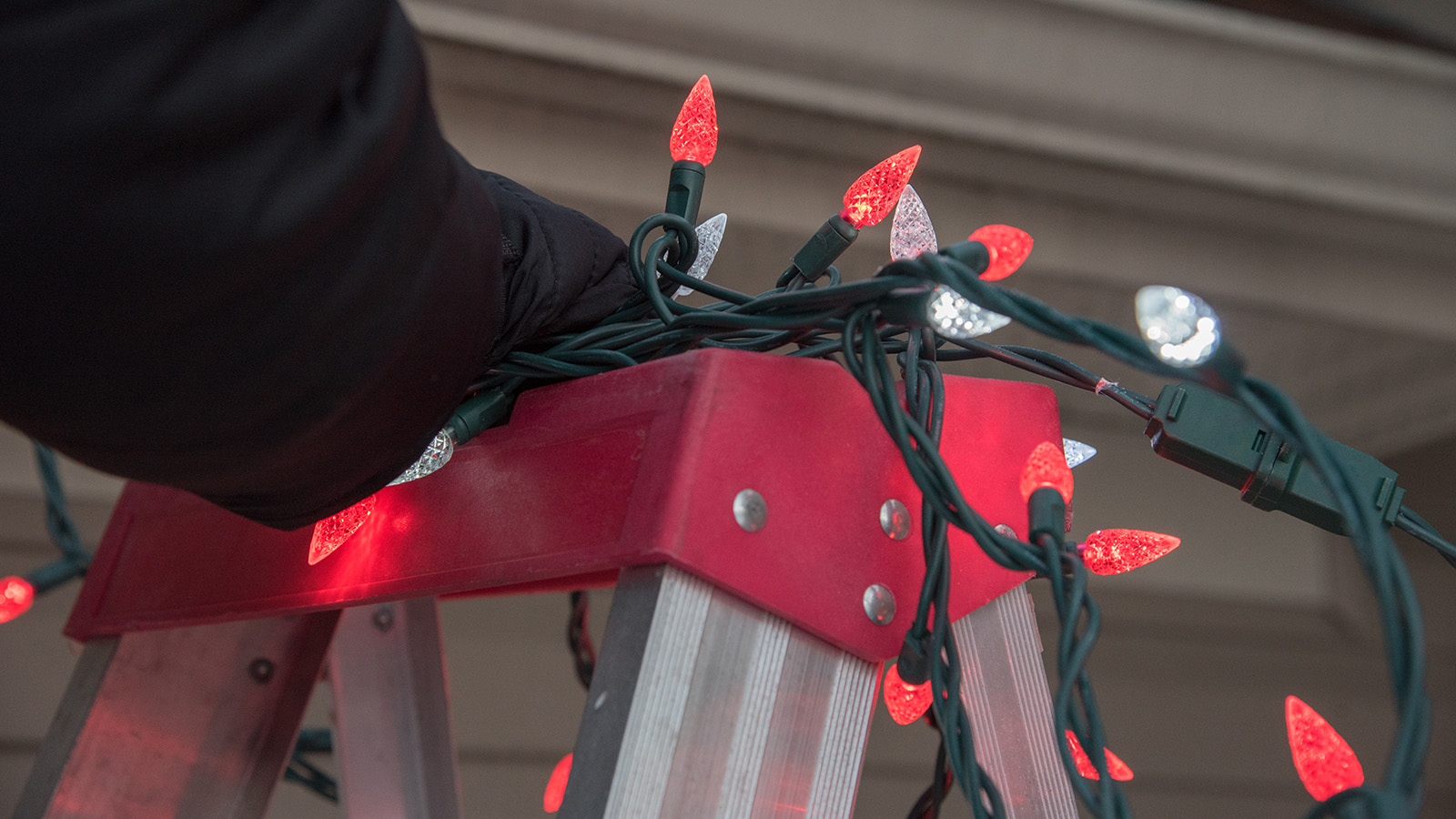
Not taking into consideration safety issues is one of the 7 Christmas decorating mistakes to avoid, according to experts. Having a spotter is one way of enhancing safety, which means enlisting the support of someone while you’re up a ladder or standing somewhere unsteady, especially if there are younger kids and pets around.
The most sturdy of ladders may still teeter over, so if you want to stay safe, don’t hang your Christmas lights without a spotter around to help you, and catch you.
Sign up to get the BEST of Tom's Guide direct to your inbox.
Get instant access to breaking news, the hottest reviews, great deals and helpful tips.
4. Mix LED and incandescent lights on the same chain
The experts at LightingLegends.com give the following advice when it comes to mixing different types of lights, “Incandescent lighting uses a lot more electricity and draws more current than LED lights. If they are mixed on the same chain, the excess current can cause the LEDs to become damaged or fail.”
Mixing the two poses a fire hazard, can damage the lights, and overall leads to poor performance with the off balance of currents. Stick to just one type of lights on a single chain to get the most out of them and keep everyone safe.
5. Hang them without checking them first
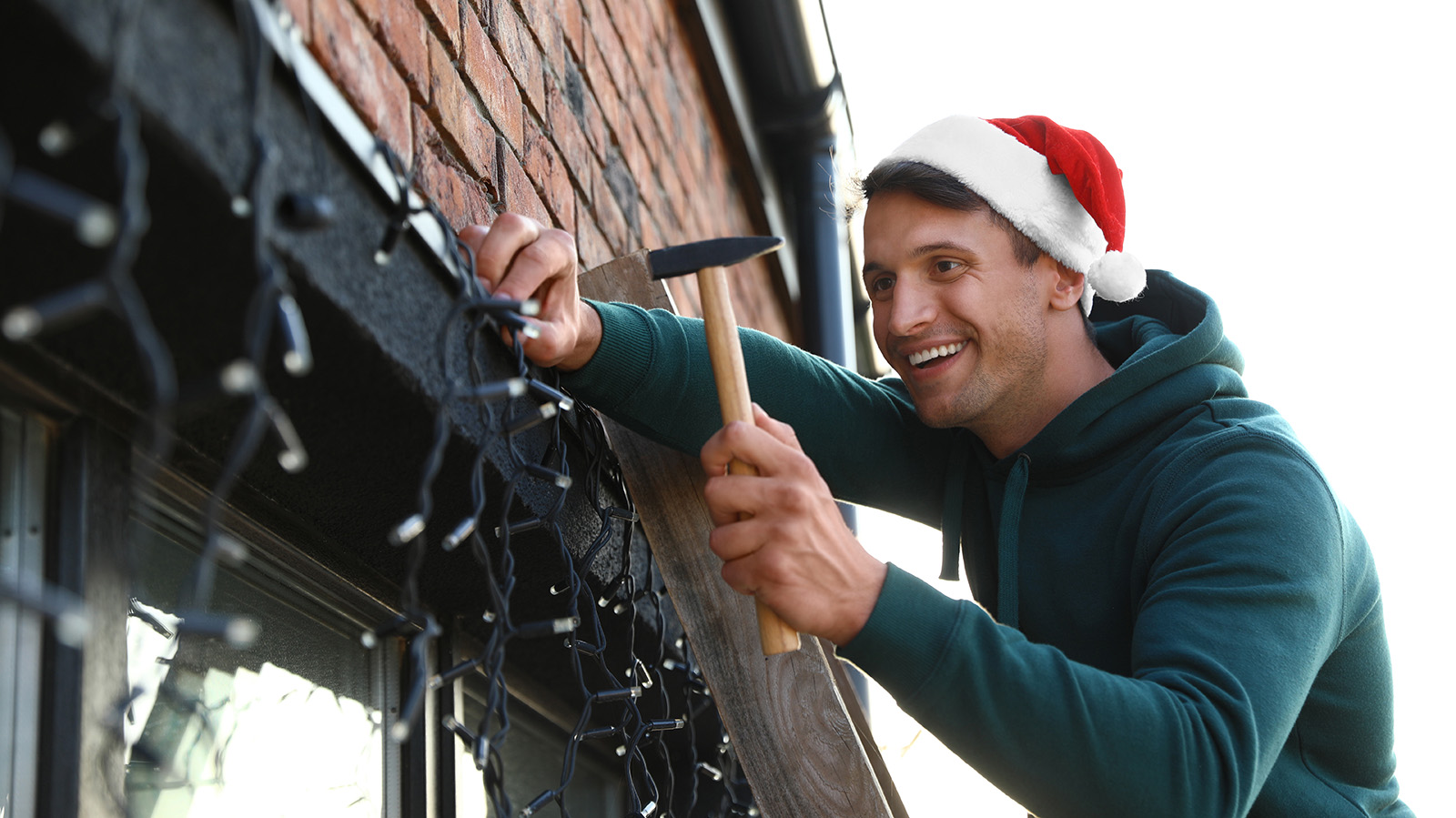
There’s no greater waste of time than hanging all your Christmas lights up beautifully only to find out they don’t turn on when you flick that switch for the big reveal. It’s not just disappointment you could be feeling though, but a fire hazard risk and even electrocution if there’s damage in your lights that you don’t know about.
For this, the experts recommend that, “Checking the bulbs individually as well as the wire and fuse should tell you whether your lights are damaged by sight. Also make sure to read the safety label and instructions.”
More from Tom's Guide
Grace is a freelance journalist working across homes, lifestyle, gaming and entertainment. You'll find her writing for Tom's Guide, TechRadar, Space.com, and other sites. If she's not rearranging her furniture, decluttering her home, or relaxing in front of the latest streaming series, she'll be typing fervently about any of her much-loved hobbies and interests. To aid her writing, she loves to head down internet rabbit holes for an unprecedented amount of time.
